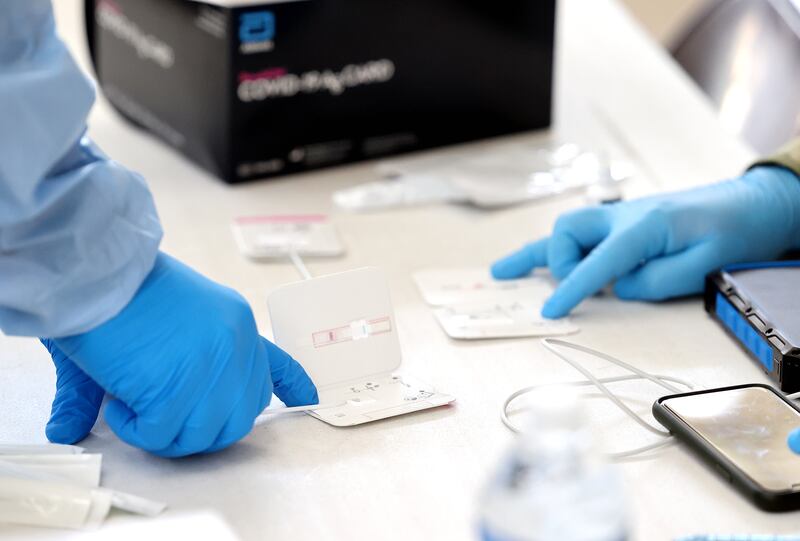The delta variant of the coronavirus continues to rage throughout the country, infecting thousands every day with high transmissibility.
On Friday, there were more than 100,000 daily cases of COVID-19 across the United States, according to data from the Centers for Disease Control and Prevention.
- The U.S. has not seen case numbers this high since February 2021, before the vaccines were so widely available for people, according to The Washington Post.
- Florida, for example, recently shattered hospitalization records for COVID-19, too.
Is there a COVID-19 test for the delta variant?
Not really. COVID-19 tests don’t always detect the delta variant because the delta variant “carries distinctive biological markers that some among the dozens of commercially available COVID tests from academic institutes and medical giants may not be able to sense,” according to Fortune.
- But the polymerase chain reaction testing platforms (PCR tests) often look at genetic variants to the virus and its strain. So a PCR test could, in theory, help you discover if you got infected with the delta variant, the Deseret News reported.
The PCR test can take longer than a rapid test, which often takes 30 minutes to complete. PCR tests take a few days so experts can assess the biological details, according to the Deseret News.
- “Those faster diagnostics may be able to sense whether or not you’re generally infected with COVID, but not necessarily whether it’s the delta strain specifically that’s afflicting you,” according to Fortune.
Right now, the U.K. seems to be building technology to help tests more easily discover the delta variant.
Is the delta variant more dangerous?
Health experts recently told Reuters that the delta variant is pushing health care systems to their limits as hospitalizations continue to increase. The variant spreads faster than the original mutation, which has led to more infections.
- “This is like a wildfire, this is not a smoldering campfire. It is full-on flames right now,” said Dr. Michelle Barron, senior medical director of infection prevention and control at Colorado’s UCHealth, according to Reuters.


